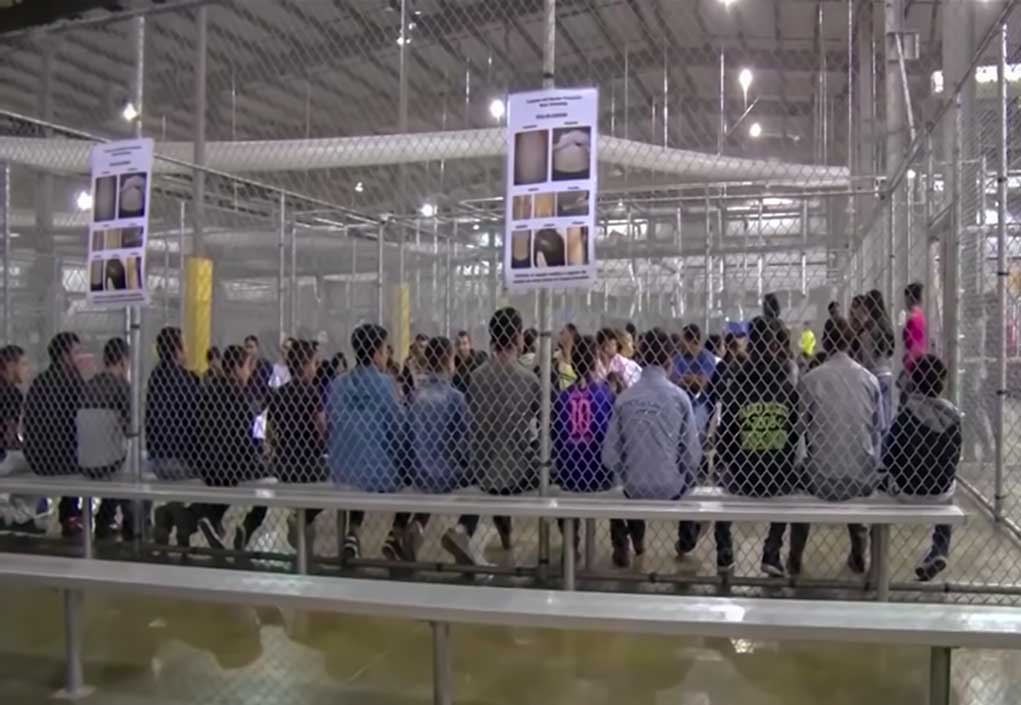
A Kansas judge has temporarily halted CoreCivic from housing ICE detainees at its Leavenworth facility due to unresolved safety concerns and permit issues, blocking President Trump’s immigration enforcement efforts in a facility that had already faced serious accusations of human rights violations.
Key Takeaways
- Leavenworth County Judge John Bryant issued a temporary restraining order against CoreCivic, preventing them from housing ICE detainees without first obtaining a special use permit from city officials.
- CoreCivic claims the judicial block will cost them $4.2 million in monthly revenue as they attempt to reopen a facility that was closed in 2021 following President Biden’s policies limiting private prison use.
- The facility has a troubled history, with reports of unsanitary conditions, inadequate medical care, and civil rights violations that have raised serious concerns about detainee treatment.
- City officials emphasize the case centers on local land use regulations and safety concerns, not immigration policy, after CoreCivic withdrew its permit application claiming it was unnecessary.
- The demand for detention space has increased under President Trump’s enhanced immigration enforcement and deportation policies.
Legal Battle Over Detention Facility
The battle over CoreCivic’s attempts to house illegal immigrants at their Leavenworth facility escalated when Judge John Bryant granted the city’s request for a temporary restraining order. This decision effectively prevents CoreCivic from housing ICE detainees at the facility unless they first obtain a special use permit from local officials. The company’s lawyers argued in court that halting operations would result in a devastating $4.2 million monthly revenue loss, highlighting the financial stakes in this clash between federal immigration enforcement and local governance requirements.
Leavenworth city manager Scott Peterson made it clear that the city’s position is not politically motivated but rather focused on proper municipal procedures. “I would point out that maybe the reason we have seen some success here today is this is not about immigration. This is not about private prisons. This is about land use,” said Scott Peterson, Leavenworth city manager.
The facility has been closed since 2021 when President Biden ordered the phasing out of private prison contracts. However, under President Trump’s administration, which has prioritized stronger immigration enforcement and increased deportations, the demand for detention space has surged dramatically. This has prompted companies like CoreCivic to attempt rapid reopenings of previously shuttered facilities to meet federal demands for housing illegal immigrants awaiting deportation proceedings.
History of Troubling Conditions
The CoreCivic facility’s history raises serious concerns about the treatment of detainees. Reports from civil rights organizations document disturbing conditions, including extended lockdowns, unsanitary environments, inadequate medical care, and limited access to legal counsel. These problems have been extensively documented by detainees and legal advocates, painting a picture of systematic failures that appear to violate both federal standards and constitutional protections that even non-citizens are legally entitled to during detention.
“What’s happening at FCI Leavenworth is not only a violation of ICE’s own policies — it’s a violation of our shared humanity,” said Karla Juarez, executive director of Advocates for Immigrant Rights and Reconciliation. “These are people who have already won their immigration cases and who should be free with their families, not locked in overcrowded cells without access to medical care or even sunlight. We are horrified. We demand that ICE and BOP stop treating immigrant lives as disposable and immediately release those who have already been granted protection. Detaining people under civil immigration law in punitive prison conditions is unacceptable and unlawful.”
According to documentation from multiple legal organizations, detainees have faced rat infestations, limited cleaning supplies, inadequate food portions, and lack of proper language services. Perhaps most troubling are reports that many detainees remain in ICE custody despite having already won their immigration cases, raising questions about the facility’s administrative competence and highlighting the urgent need for greater oversight before any reopening is permitted.
Permit Dispute at Center of Controversy
The immediate legal dispute centers on CoreCivic’s refusal to comply with local permitting requirements. The company initially applied for a special use permit as required by city regulations but later withdrew the application, arguing that the process was unnecessary and would cause delays in their operational timeline. This decision prompted the city to file a lawsuit alleging that CoreCivic was attempting to bypass critical safety reviews and regulatory oversight designed to protect both the community and those housed at the facility.
“Just follow our rules. Go get a permit,” said Joe Hatley, representing the city of Leavenworth.
The city’s lawsuit specifically highlighted CoreCivic’s past interference with police investigations and safety concerns that remain unaddressed. While an initial lawsuit was dismissed on technical grounds, the refiled case in state court successfully secured the temporary restraining order. The judge’s decision affirms the city’s authority to enforce local regulations even when they impact federal immigration enforcement priorities, creating a significant procedural hurdle for President Trump’s efforts to rapidly expand detention capacity for illegal immigrants.




